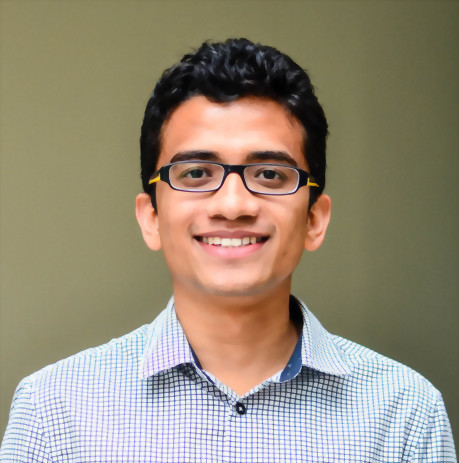"Powering the Next Generation Internet-of-Things," by Ujwal Radhakrishna

The prospect of 10 billion connected devices by 2025 promises an ecosystem for ‘Internet of everything’ for targeted applications in sectors such as automation, infrastructure and healthcare. Hardware systems that support this ecosystem typically comprise of i) signal-transducers (ii) power management circuits (iii) low-power computation and (iv) interface RF-circuits. These modules however, are still sub-optimum as they result from standalone research in each of them wherein either the sensor devices or the interface circuits do not account for the limitations imposed by the other. This has lead to inefficient power extraction capability, reduced life-time and functionality and increased form-factor in present sensor systems. My research combines emergent-material research, innovative sensor-modeling and fabrication, and specialized circuit techniques to design end-to-end IoT sensing systems that can potentially overcome these limitations and support the next generation of IoT. In my talk, I will demonstrate the importance of the need to co-design sensor devices with circuits using two research examples. The first one concerns a vibrational energy harvester system for industrial machine health monitoring and the second one deals with mobile phone-based distributed vehicular communication for real-time traffic management. Using them, I will illustrate the approaches taken for a full system design and optimization that include multi-physics transducer design, semiconductor device design, simulation framework development, and co-design of interface circuits. Through these examples, I will illustrate the tools and techniques that help in translating novel technologies to full system application in the context of IoT sensing.
Seminar Speaker
Ujwal Radhakrishna is postdoctoral research associate in the Research Laboratory of Electronics (RLE) at MIT working in the area of energy harvesting with Professor Anantha Chandrakasan and Professor Jeffrey Lang. It involves the design of MEMS based harvesters and low power circuit design for machine health monitoring.
He received his Ph.D from Microsystems Technology Laboratory (MTL) at MIT in 2016 under the supervision of Professor Dimitri Antoniadis and Professor Tomas Palacios. The dissertation involved developing physics-based compact model for Gallium Nitride (GaN) high electron mobility transistors (HEMTs) for RF and HV applications. His research work has been adopted by the industry consortium (Compact Modeling Coalition) to be industry standard. He received his Master of Science in Electrical engineering at MIT in 2013 and B. Tech and M. Tech degrees in 2011 in Microelectronics and VLSI at Indian Institute of Technology, Madras, India.
Seminar Sponsored by the Department of Electrical Engineering